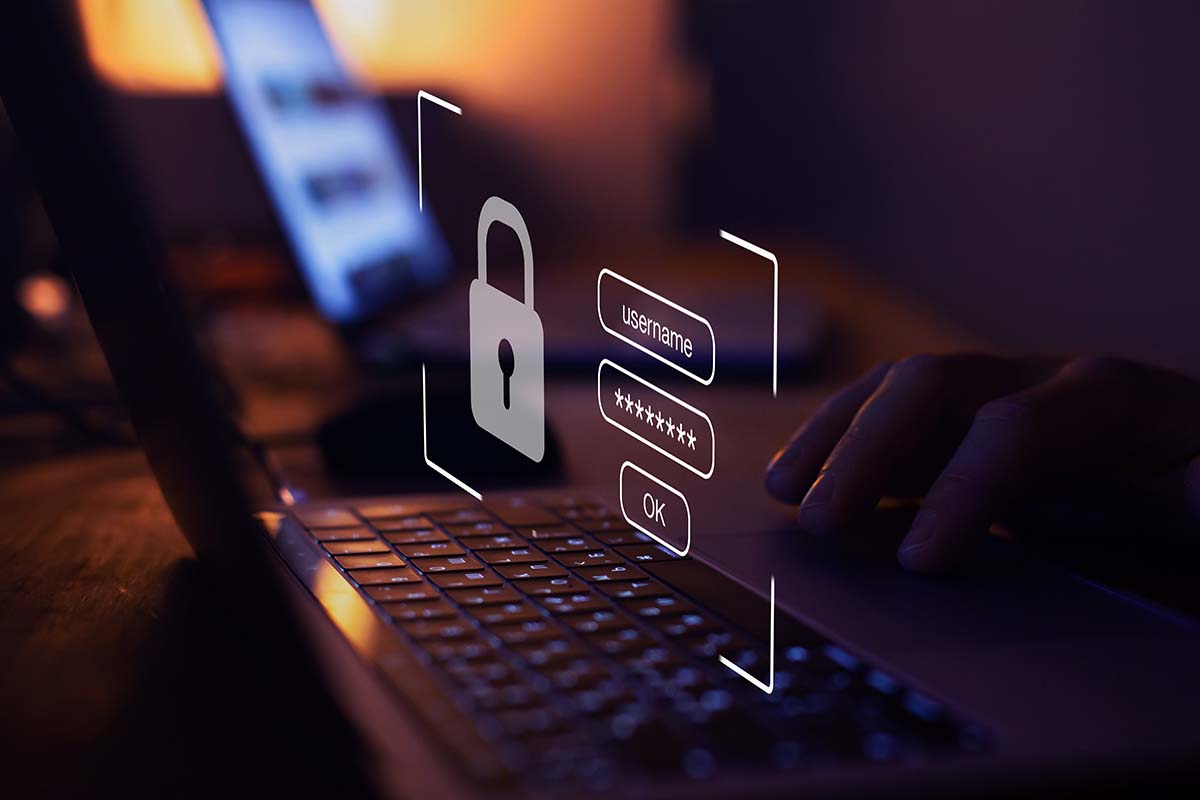What is the Role of Cyber Security in Business Continuity?
Technology keeps getting better, making cybersecurity very important for businesses. It’s key to keeping a company’s data and operations safe, which is vital for businesses to continue running smoothly.
It is important to know how cyber security helps with business continuity. It helps companies plan better for any issues. By focusing on cyber security, businesses can avoid big problems and keep running smoothly.
Key Takeaways
- Cyber security is essential for business continuity planning.
- Cyber security’s importance extends beyond data protection to encompass business operations.
- Effective cyber security strategies can minimize the risk of cyber attacks.
- Business continuity planning is critical for ensuring uninterrupted business operations.
- Cybersecurity plays a vital role in safeguarding a company’s assets.
- Companies must answer the question of cyber security’s role in business continuity to develop effective business continuity planning strategies.

Understanding the Intersection of Cyber Security and Business Continuity
Cyber security is key to keeping businesses running. With new tech, protecting against threats is more important than ever. Companies need strong cyber security plans to stay safe and keep operations going.
Today, businesses face many dangers, like data theft and ransomware. To fight these, they must use good cyber security. This includes finding threats, responding to attacks, and planning when things go wrong. This way, they can keep running smoothly, save money, and keep customers happy.
Defining Cyber Security in a Business Context
In business, cyber security means keeping digital stuff safe from harm. It’s about stopping bad guys from getting in, messing with things, or stealing data. Good cyber security means finding weak spots, figuring out risks, and fixing them before they become big problems.
The Evolution of Business Continuity Planning
Business continuity planning has greatly changed, with more focus on cyber security. Today’s plans must consider how cyber attacks can hurt businesses. They need to have ways to deal with and overcome these problems. This way, companies can handle any issue, big or small, like a cyber attack or a natural disaster.
Modern Threats to Business Operations
Today, businesses face many dangers, like phishing and malware. To stay safe, they must be proactive about cyber security. They should use the latest tech, like AI, and teach employees to stay safe online. This helps businesses stay strong and keep running, even when faced with cyber threats.
Critical Components of Cyber Security in Business Operations
Cyber security is key to keeping businesses safe and running smoothly. In today’s world, companies face more cyber threats than ever. Cybersecurity and business continuity go hand in hand, as a cyber attack can stop a company in its tracks.
Some important parts of cyber security in business include:
- Network security measures to prevent unauthorized access
- Data backup and recovery systems to ensure business continuity
- Incident response protocols to quickly respond to security incidents
Cybersecurity plays a huge role in keeping businesses running. A cyber attack can cause financial losses, harm a company’s reputation, and stop operations. By focusing on cyber security, companies can be ready to handle security issues and keep their operations going.
Business continuity and information security are vital for companies to work well. Strong cyber security allows businesses to keep their data and operations safe even if disaster or cyber attacks strike.
The Impact of Cyber Threats on Business Sustainability
Cyber threats can seriously harm a business. Therefore, it’s key for companies to have a plan to fight these threats. The first step is to determine what risks and threats they face.
This means checking their cyber security and determining the first step in the risk analysis. By doing this, companies can make a detailed plan to prevent and handle cyber threats.
A big part of this plan is considering the money lost from security breaches. Cyber attacks can cause big losses, harm a company’s reputation, and stop operations. To avoid these problems, companies need strong cyber security, such as firewalls and encryption.
They also need a plan for getting back to normal after a breach. This plan should include steps to stop threats and fix systems and data.
Financial Implications of Security Breaches
- Loss of revenue due to downtime and operational disruptions
- Costs associated with incident response and recovery
- Damage to reputation and loss of customer trust
Operational Disruptions and Recovery Time
Disruptions can hurt a business. It’s important to have a plan for getting back to normal, including steps to stop threats and fix systems and data.
With a good plan, companies can lessen the harm from cyber threats. This helps keep the business running smoothly.
Building a Robust Cyber Security Framework
Creating a strong cyber security framework is key for businesses. It helps protect them from cyber threats and keeps them running. Disaster recovery is a big part of this, helping businesses bounce back fast from attacks.
Knowing the goal of business continuity is vital. Courses like “What is the goal of business continuity?” Coursera offers great insights. They help businesses make a solid plan for disaster recovery and more.
With a strong cyber security framework, businesses can better face cyber threats and keep running even when disaster strikes.
Some important parts of a strong cyber security framework are:
- Regular security audits and risk assessments
- Security measures like firewalls and intrusion detection systems
- Incident response protocols
- A disaster recovery plan
By adding these elements, businesses can create a strong cybersecurity framework. This framework protects them from cyber threats and keeps them running smoothly, which is essential for businesses to thrive in today’s digital world.
Essential Elements of Business Continuity Planning
Business continuity planning is key for companies to handle disruptions like cyber attacks. It’s about knowing how cybersecurity helps keep businesses running. This means doing a business impact analysis (BIA in cyber security) and making incident response plans (IRP cyber security).
A good business continuity plan helps reduce downtime. Cyber security is a big part of this, as it fights off cyber threats. Companies must assess their risks and find ways to lessen them. This includes strong security steps like access controls and data backups.
Risk Assessment and Analysis
Risk assessment and analysis are vital in business continuity planning. They involve finding risks, determining their likelihood, and assessing how they might affect business. By understanding cyber security, companies can make better plans to keep operations going.
Incident Response Protocols
Incident response protocols are key for quickly and effectively handling security issues. This includes plans for cyber attacks and steps to stop and remove threats. With good incident response plans, companies can lessen the blow of security problems and keep business running.
Recovery Strategy Development
Recovery strategy development is the last step in business continuity planning. It’s about making plans to get back to normal after security issues. With a solid recovery plan, companies can keep operations going and reduce the effects of security problems.
What is the Role of Cyber Security in Business Continuity?
Cybersecurity is key to keeping businesses running. A business continuity plan (BCP) helps companies stay open during disasters or cyber-attacks. Knowing about BCPs in cyber security is vital for protecting data and operations.
Business continuity management (BCM) in cybersecurity means making plans to prevent, handle, and overcome cyber threats. This includes setting up incident response plans, conducting risk checks, and creating recovery plans. By knowing about BCM in cybersecurity, businesses can strengthen their operations against cyber attacks.
Companies must focus on cybersecurity to keep business going. This means spending on security, training staff, and keeping systems current. This way, businesses can lower cyber attack risks and keep running, even during disasters. Cybersecurity is key for keeping customer data safe, avoiding financial losses, and keeping a good business reputation.
- Develop a detailed business continuity plan
- Put in place strong cybersecurity steps
- Do regular risk checks and training
By following these steps, businesses can keep their operations safe and strong, even against cyber threats. It’s important for companies to understand cyber security’s role in keeping business going, protecting their assets, and maintaining customer trust.
Read More: What is The Role of IT in Business Continuity Planning?
Implementing Effective Security Measures
Strong security can help businesses avoid big problems. Important parts of this are access control, data protection, and network monitoring. These steps keep bad guys out and protect important data and systems.
Starting with strong passwords and multi-factor authentication is key. This way, only the right people can get in. Also, planning to get back up after a disaster is very important.
Essential Security Measures
- Access control and authentication
- Data backup and recovery systems
- Network monitoring solutions
Watching the network helps catch and fix security problems quickly. With these steps, businesses can continue running smoothly and keeping data safe. It’s all about being ready for security checks and always getting better.
Putting cybersecurity first helps businesses stay safe from cyber threats. This means keeping data safe, avoiding problems, and making sure things keep going without a hitch.
Creating a Culture of Cyber Resilience
Cyber resilience is key for businesses to recover from cyber-attacks. A big part of this is incident response planning, which helps companies react quickly and effectively to security breaches.
Good incident response planning means teams work together. This makes sure everyone knows their part in facing a cyber attack.
Reputation management is also key in building cyber resilience. Companies need to be ready to protect their image after a cyber attack. This can be done by being open and acting quickly. Teams must work together to lessen the attack’s effects.
To get cyber resilience, businesses should build a culture that values security and teamwork. This can happen through regular training and encouraging team communication. By doing this, companies can be ready to face cyber attacks and keep their reputation safe.
- Develop an incident response plan that outlines roles and responsibilities
- Establish a reputation management strategy that includes transparent communication and swift action
- Foster collaboration between teams to ensure a unified response to cyber attacks
Measuring and Maintaining Security Effectiveness
Businesses need to check and boost their cybersecurity plans often. They should watch how fast they respond to attacks, how well they fix bugs, and if they follow access rules. This helps them find and fix weak spots in their security.
Good cybersecurity helps keep businesses running smoothly. It’s about having backups and copies of data and using strong access controls. These steps help stop bad guys from accessing important information.
Keeping security strong means always looking for ways to get better. This includes doing security checks, finding weak spots, and testing defenses. Some ways to keep improving include:
- Using an SIEM system to watch and understand security data
- Teaching employees about security to stop tricks and scams
- Keeping software and systems up-to-date with the latest fixes
By focusing on security and using these methods, companies can lower the chance of getting hacked. Regular checks and trying to get better help businesses stay safe against new threats.
Future Trends in Cyber Security and Business Continuity
Technology changes constantly, and businesses must keep up. They need strong cyber security and business continuity plans. Network monitoring and intrusion detection are key. They help spot and fight cyber-attacks quickly.
Vulnerability management is also vital. It lets companies find and fix weak spots before hackers do. Employee training is another big deal. It teaches staff to spot and report security risks.
By training employees, companies lower the chance of mistakes. This builds a strong cyber-aware culture. Some big trends in cyber security and business continuity include:
- More use of artificial intelligence and machine learning to fight cyber threats
- More focus on fixing vulnerabilities and keeping systems updated
- More emphasis on training and making staff aware of cyber risks
Businesses can face any threat by keeping up with new trends and best practices.
Also Read,
Conclusion
Cyber security is key for businesses to keep running smoothly. A good plan for disaster recovery, cyber resilience, and awareness of cyber threats is vital. Companies need to act fast to protect their work and data.
For businesses to succeed, they must focus on cyber resilience, create a culture of security, and have solid backup plans. Companies can stay ahead in the digital world by making cyber security a main part of their strategy.
FAQ
What is the role of cyber security in business continuity?
Cyber security is key for business continuity. It guards a company’s data and operations against cyber threats, ensuring the business can keep running even during disasters or cyber-attacks.
How does cyber security contribute to business continuity?
Cybersecurity helps in many ways. It protects data, plans for incidents, and manages reputation. It lessens cyber threat impacts, ensures data backup, and helps respond fast to security issues.
What are the key components of a cyber security framework for business continuity?
A good cyber security framework includes access controls and network monitoring. It also has vulnerability management and employee training. These steps protect data and operations, keeping the business running despite cyber attacks.
How can businesses measure the effectiveness of their cyber security measures for business continuity?
Businesses can track security metrics and KPIs to measure their cyber security. Regular security audits and continuous improvement strategies are also key. This ensures their security is strong and they can handle security incidents well.
What are the financial and operational implications of cyber threats for business continuity?
Cyber threats can cause serious financial and operational problems, including financial losses, operational disruptions, and damage to reputation. Cyber security is vital to avoid these risks and keep the business going.
How can businesses create a culture of cyber resilience?
Businesses can build a cyber-resilient culture by planning for incidents and managing reputation. They should also work together across teams, which prepares the whole organization to face and recover from cyber threats.
What is the relationship between cyber security and disaster recovery in business continuity?
Cyber security and disaster recovery are closely related to business continuity. Good cyber security prevents and reduces cyber attack impacts, while disaster recovery planning helps a business bounce back from disruptions, including cyber threats.






